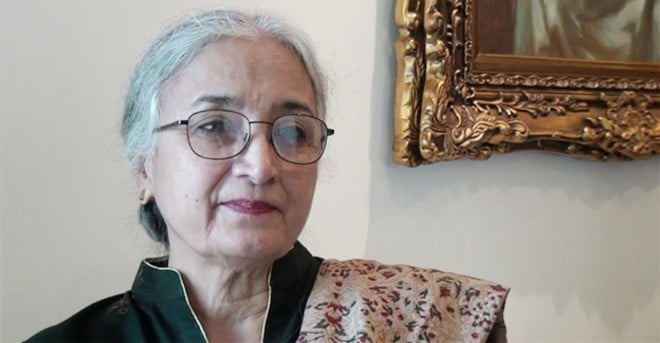

The News on Sunday (TNS): The Council of Islamic Ideology (CII) has declared that it is not mandatory for a man to seek permission of his wife/wives before marrying again and that underage marriage is not un-Islamic. How controversial are these two recommendations? Do they suggest regression as far as women’s development is concerned? How do they challenge the Muslim Family Laws?
Khawar Mumtaz (KM): Both positions are controversial and unnecessary at this point and time when the law and procedures related to personal laws are finally becoming known and are being applied. Such positions create confusion and doubts about established laws and reinforce patriarchal thinking. Let us not forget that the Muslim Family Laws Ordinance (MFLO) was promulgated in 1961 after a Committee headed by Justice Abdur Rasheed and comprising of scholars, deliberated on personal laws from the perspectives of different schools of Islamic thought, reviewed personal laws as implemented in different Muslim countries, consulted authorities in Islamic jurisprudence, looked at the current conditions and then framed their recommendations for MFLO.
To challenge them after 50 years, instead of promoting adherence and stronger implementation mechanisms, seems out of place. As I said earlier, such recommendations just create confusion.
TNS: The track record of CII (though its recommendations are not legally binding) has been controversial: it declared that men who practise family planning would go bald; DNA tests are unacceptable as primary evidence in rape cases, and now it is attacking the civil rights of women in Pakistan. Does Pakistan need a body with such rabid views? Does it serve any purpose or further target women in society?
KM: Frankly, in a Muslim country where the constitution is based on Islamic principles, the CII has perhaps lost its utility.
TNS: The CII views come as a reminder of long and winding debate over how the principles laid out in the Quran and Sunnah are to be applied in a changing world; that constitution be declared un-Islamic for being ultra vires of the Sharia. How has this thought affected women’s rights, implementation of Family Laws in Pakistan?
KM: There are diverse opinions, as are likely to be on various issues in any society, so also in Pakistan. Important for institutions is to ensure that justice is being dispensed fairly and to ensure that negative practices are not reinforced. The challenging of aspects of the Family Laws from time to time by institutions like the CII of course affects women’s rights and leads to violations of the law.
TNS: What can be the socio-cultural consequences of the CII recommendation?
KM: The issue of under-age marriage has been discussed extensively in Pakistan. The adverse effects of early marriage on girls, the negative health consequences, stunting of physical and mental growth, denial of their development potential etc. have been documented and discussed thread bare. Permission from existing spouse before remarriage has been a deterrent and helps in ensuring that the first wife gets her due maintenance and rights according to the law.
I don’t understand how mechanical interpretation of Islam can be used to justify denial of rights. Mechanical interpretations of Islam divested from social reality of today cannot be used to deny justice to weaker sections of society. Such recommendations have socio-cultural implications and undermine equality of genders.
TNS: What is the stand of NCSW on this issue?
KM: NCSW has expressed its strong exception to the recommendations. It holds that the Muslim Family Laws Ordinance, 1961 was promulgated after serious and in-depth deliberations of an eminent Committee representing all Islamic schools of thought. The Committee reviewed personal status laws of other Muslim countries in the light of contemporary conditions and challenges and then made its recommendations in keeping with the spirit of justice and fairness. The CII should give attention to curbing practices like vani, swara and karo kari and ensure that women get their due constitutional rights instead of unnecessarily re-opening settled matters. Marriages in Islam are contracts between two consenting adults any recommendation that violates that basic principle is not acceptable.
Further, it has been medically established that marriages before 18 years of age have far reaching damaging consequences for the health of young girls and their children and, therefore, must be avoided at all cost.